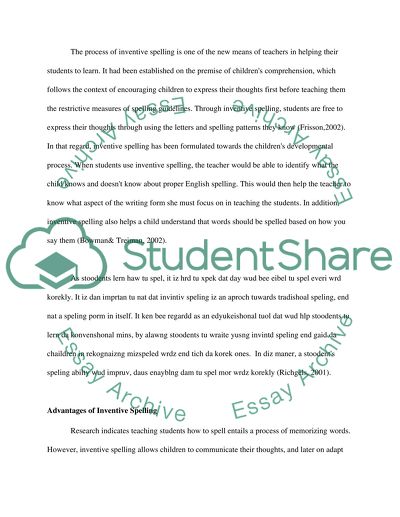Cite this document
(“Inventive Spelling, should we convert Essay Example | Topics and Well Written Essays - 1500 words”, n.d.)
Retrieved from https://studentshare.org/english/1437138-inventive-spelling-should-we-convert
Retrieved from https://studentshare.org/english/1437138-inventive-spelling-should-we-convert
(Inventive Spelling, Should We Convert Essay Example | Topics and Well Written Essays - 1500 Words)
https://studentshare.org/english/1437138-inventive-spelling-should-we-convert.
https://studentshare.org/english/1437138-inventive-spelling-should-we-convert.
“Inventive Spelling, Should We Convert Essay Example | Topics and Well Written Essays - 1500 Words”, n.d. https://studentshare.org/english/1437138-inventive-spelling-should-we-convert.


